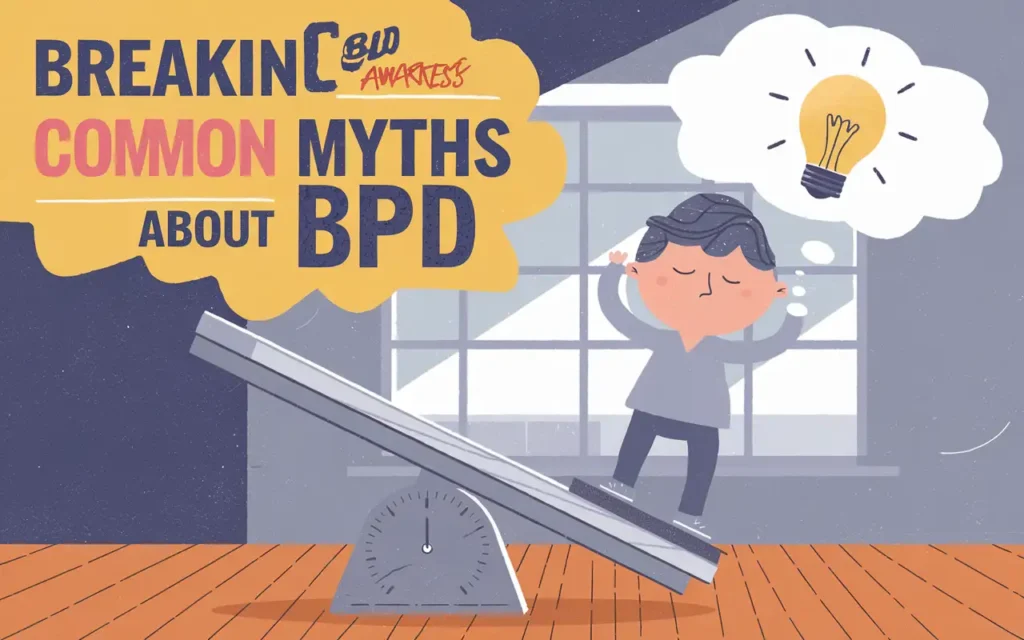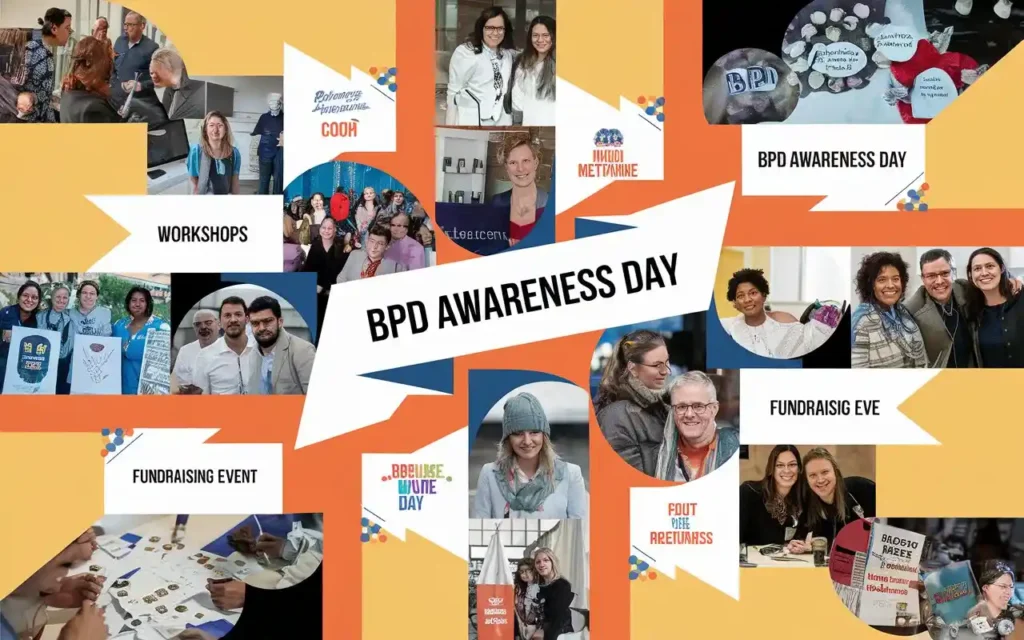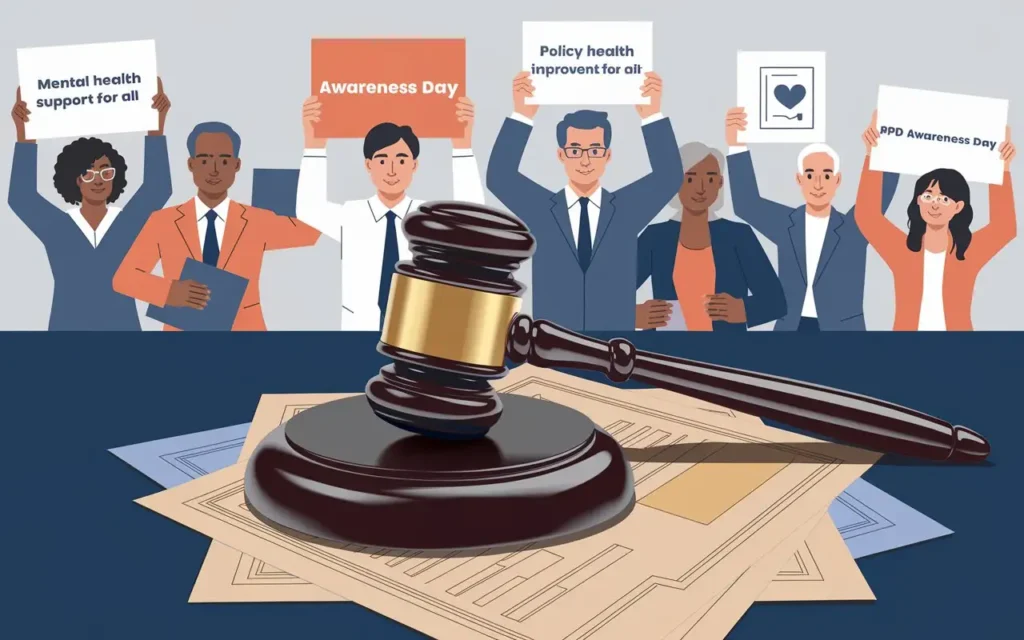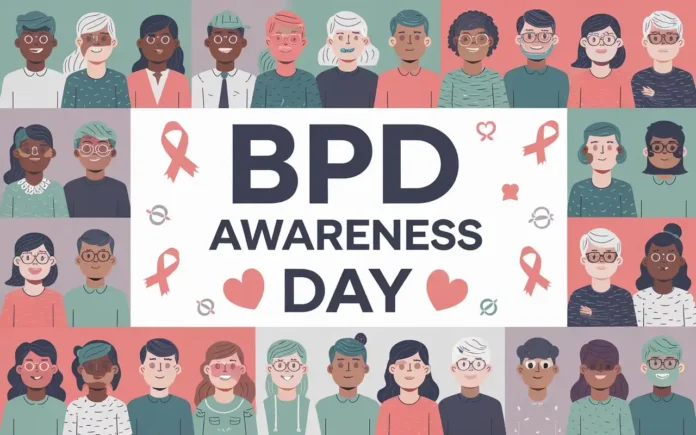Table of Contents
- Understanding BPD: An In-Depth Look
- The Importance of BPD Awareness Day
- Recognizing the Signs and Symptoms of BPD
- Effective Treatment Options for BPD
- Supporting Loved Ones on BPD Awareness Day
- BPD Myths Debunked
- BPD Awareness Day Events and Activities
- The Role of Social Media in BPD Awareness Day
- Educational Resources for BPD Awareness Day
- Advocacy and Policy Changes Driven by BPD Awareness Day
1. Understanding BPD: An In-Depth Look

BPD Awareness Day is essential because it provides an opportunity to delve into the complexities of Borderline Personality Disorder (BPD). BPD is a mental health condition characterized by pervasive instability in moods, behavior, self-image, and functioning.
What is Borderline Personality Disorder?
Borderline Personality Disorder affects approximately 1.6% of the general population. Individuals with BPD often experience intense episodes of anger, depression, and anxiety that may last from a few hours to days.
Causes of BPD
- Genetic Factors: A family history of BPD can increase the risk.
- Environmental Influences: Trauma, especially during early life, plays a significant role.
- Brain Structure: Differences in brain function and structure can contribute to BPD.
Diagnosis and Challenges
Diagnosing BPD can be challenging due to overlapping symptoms with other mental health disorders. Accurate diagnosis often requires a comprehensive evaluation by a mental health professional.
2. The Importance of BPD Awareness Day
BPD Awareness Day is crucial as it shines a light on the struggles faced by individuals with BPD and their families. This day aims to reduce stigma and promote understanding and acceptance.
Raising Public Awareness
Public awareness campaigns during BPD Awareness Day help educate communities about the realities of living with BPD, dispelling myths and misconceptions.
Promoting Mental Health Resources
On BPD Awareness Day, organizations and support groups highlight available resources, making it easier for individuals to seek help and support.
Encouraging Policy Change
Awareness days can influence policymakers to implement changes that improve mental health services and support systems for those affected by BPD.
3. Recognizing the Signs and Symptoms of BPD
BPD Awareness Day plays a vital role in helping people recognize the signs and symptoms of Borderline Personality Disorder, facilitating early intervention and support.
Emotional Instability
Individuals with BPD often experience rapid mood swings and intense emotional responses to everyday situations.
Interpersonal Relationship Issues
Maintaining stable relationships can be challenging due to fears of abandonment and a pattern of unstable interpersonal relationships.
Impulsive Behaviors
Impulsivity in areas such as spending, substance abuse, or reckless driving is common among those with BPD.
4. Effective Treatment Options for BPD
BPD Awareness Day highlights the various treatment options available, offering hope and pathways to recovery for those affected.
Dialectical Behavior Therapy (DBT)
DBT is a type of cognitive-behavioral therapy that focuses on teaching coping skills to manage emotions and reduce self-destructive behaviors.
Medication
While there is no specific medication for BPD, certain medications can help manage symptoms such as mood swings, depression, and anxiety.
Support Groups and Counseling
Engaging in support groups and individual counseling provides a safe space for individuals to share experiences and strategies for managing BPD.
5. Supporting Loved Ones on BPD Awareness Day

BPD Awareness Day serves as a reminder to support those around us who are living with Borderline Personality Disorder.
Understanding Their Experience
Educate yourself about BPD to better understand what your loved one is going through.
Effective Communication
Practice active listening and maintain open, non-judgmental communication to build trust and support.
Encouraging Professional Help
Encourage your loved ones to seek professional help and support them in accessing mental health services.
6. BPD Myths Debunked

BPD Awareness Day is an ideal time to address and debunk common myths surrounding Borderline Personality Disorder.
Myth 1: BPD is Untreatable
Fact: With appropriate treatment, individuals with BPD can lead fulfilling and stable lives.
Myth 2: People with BPD are Manipulative
Fact: Behaviors often misunderstood as manipulative are actually expressions of intense emotional pain.
Myth 3: BPD is Rare
Fact: BPD affects a significant portion of the population, and increased awareness helps in recognizing and treating it.
7. BPD Awareness Day Events and Activities

BPD Awareness Day features a variety of events and activities designed to educate and engage the community.
Workshops and Seminars
Educational workshops and seminars provide in-depth knowledge about BPD and effective coping strategies.
Support Group Meetings
Support groups offer a safe environment for individuals to share their experiences and support each other.
Fundraising Events
Fundraising activities help raise funds for research and support services related to BPD.
8. The Role of Social Media in BPD Awareness Day
BPD Awareness Day leverages social media platforms to amplify its message and reach a broader audience.
Hashtag Campaigns
Hashtags like #BPDawareness and #EndTheStigma help unify online conversations and increase visibility.
Influencer Partnerships
Collaborating with influencers who share their personal stories can humanize BPD and foster empathy.
Educational Content
Sharing informative posts, videos, and infographics on social media educates the public about BPD.
9. Educational Resources for BPD Awareness Day
BPD Awareness Day provides access to a wealth of educational resources to deepen understanding of Borderline Personality Disorder.
Books and Literature
Numerous books offer comprehensive insights into living with and managing BPD.
Online Courses
Online courses and webinars provide structured learning opportunities about BPD.
Podcasts and Videos
Podcasts and video series feature expert discussions and personal narratives related to BPD.
10. Advocacy and Policy Changes Driven by BPD Awareness Day

BPD Awareness Day plays a pivotal role in advocating for policy changes that enhance support for individuals with Borderline Personality Disorder.
Improving Mental Health Services
Advocacy efforts aim to increase funding and access to mental health services tailored for BPD.
Legislative Changes
Influencing legislation to protect the rights and needs of those living with BPD is a key focus.
Public Health Initiatives
Public health campaigns seek to integrate BPD awareness into broader mental health strategies.
References
- National Institute of Mental Health: Borderline Personality Disorder
- Psychology Today: Borderline Personality Disorder
- Mayo Clinic: BPD Overview
- MentalHealth.gov: BPD Information




